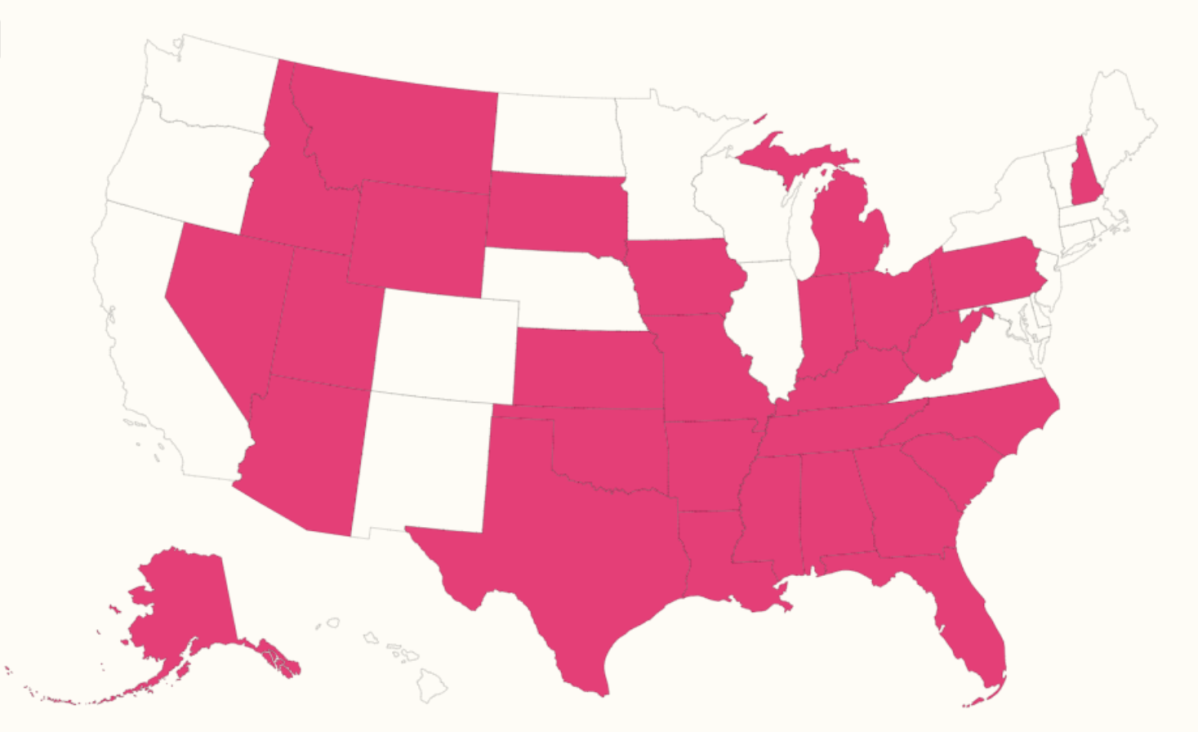Copyright Newsweek

Many states across the U.S. have "Stand Your Ground" laws, which is legislation that removes the duty to retreat during a threatening confrontation and allows for the use of deadly force as self-defense. These laws have gained renewed attention following the release of Netflix's new documentary The Perfect Neighbor, which follows the fatal shooting of Ajike Owens in 2023 by neighbor Susan Lorincz. Why It Matters While many states have them, "Stand Your Ground" laws are divisive, and have sparked significant public debate over the years. Critics of such laws argue that they can lead to excessive use of deadly violence and encourage vigilantism, while proponents believe they empower citizens to protect themselves effectively. What To Know There are almost 30 states that have "Stand Your Ground" laws, shown in the map above, according to the legal information website FindLaw.com. The reason why a large proportion of these states are situated in the South extends far back into American history and gun regulation. Caroline Light, senior lecturer and director of undergraduate studies for the program in Women, Gender, and Sexuality Studies at Harvard University, told Newsweek that many of the states, although not all, that passed the first "Stand Your Ground" laws between 2005 and 2007 were states of the former Confederacy. These were states that united separately from the union during the American Civil War, following the election of Abraham Lincoln, in opposition to the movement seeking to end the institution of slavery, which at the time was integral to the Southern economy. Light said that promoters of "Stand Your Ground" laws "deliberately started with the states that have fewer gun regulations," and many of these former confederate states had invested in "firearm deregulation, rooted in historic ideals of safety and security, including the need, under slavery, for white men to carry firearms openly in order to prevent uprisings." That's not to say Northern states did not also "expect white men to take up arms, particularly against Native people, who resisted the forcible encroachment on their lands, but, over time, and in the context of the Civil War and its aftermath, many southern states became disproportionately invested in a white supremacist vision of armed citizenship," Light said. Florida "Stand Your Ground" Laws Florida was the first state to implement a "Stand Your Ground" law in 2005. It is also the state where the case followed by The Perfect Neighbor takes place. Lorincz, who is white, shot and killed Owens, who was Black, following a two-year dispute about Owens' children playing near Lorincz's house. As a result, the Netflix show has drawn public attention and debate back to the wide-reaching impacts of "Stand Your Ground" laws. The debate surrounding these laws remains ongoing, with supporters of the laws "promoting a faulty, baseless message that guns save lives, and that 'the only thing that stops a bad guy with a gun is a good guy with a gun,'" Light said. Although last year, the nonprofit research organization, RAND, did a study on the effects of such laws, and found they increased violent crime, without conclusively having an impact on defensive gun use. "High-quality studies find that "Stand Your Ground" laws contribute to increased homicides, especially gun homicides," Light said, adding that they also have been shown to increase road rage incidents, and "intensify race and gender biases in the way our law treats violence." A Duty To Retreat Other states impose a duty to retreat. This means that constituents can't use deadly force as self-defense while in a dangerous confrontation, if they can safely avoid risk of imminent danger. Although, this obligation to retreat is not definite. If a person is not able to retreat with complete personal safety, or if retreating could lead to an increased risk of harm, then they are not required to do so, the legislation therefore places violence as a last resort in the act of self-defense. The states that impose duty to retreat include: Connecticut, Delaware, Hawaii, Massachusetts, Maryland, Maine, Minnesota, Nebraska, New Jersey, New York, North Dakota, Rhode Island and Wisconsin, according to FindLaw.com. There is also an exception to the duty to retreat principle. This is the "Castle Doctrine," which is the idea that a "man's home is his castle," and that an individual is not required to retreat when in their own home. In some cases, this rule can extend beyond the house into the surrounding area, and in some jurisdictions, a person's vehicle or workplace are also exceptions. However, the doctrine does not apply if the person asserting self-defense was the initial aggressor. It is only accepted if the individual was not at fault for starting the confrontation. States that adopt the "Castle Doctrine" include: California, Colorado, Illinois, New Mexico, Oklahoma, Oregon, Virginia and Washington, according to FindLaw.com. What People Are Saying Caroline Light, a senior lecturer and the director of undergraduate studies for the program in Women, Gender, and Sexuality Studies at Harvard University, told Newsweek: "Most of the respected empirical research concludes that 'Stand Your Ground' laws create more havoc and destruction, including higher homicide rates and higher rates of violent escalation. There is little to no evidence that the laws actually protect people from crime. Ultimately, the laws are based on a dystopia and wrongheaded assumption that Americans need firearms for their self-defense. It’s a marketing boondoggle for the firearms manufacturers. But the most respected scientific research proves otherwise." She added: "'Stand Your Ground' laws are part of what many scholars and advocates against gun violence call the Firehose of Falsehood, the gun lobby’s claim, counter to all empirical evidence, that guns save lives and prevent crime. 'Stand Your Ground' laws are based on the faulty assumption that millions of instances of gun use per year are self-defensive, but the scientific evidence reveals this to be a lie. The vast majority of gun use incidents are suicidal, homicidal, and accidental. Only a small fraction are self-defensive." Dr. Michael Siegel, a professor in the Department of Public Health and Community Medicine at Tufts University, told Newsweek: "'Stand Your Ground' laws have become popular across the country primarily because there has been a concerted effort by the gun lobby to get these laws passed. The first 'Stand Your Ground' law was enacted in Florida in 2005 and was crafted by former National Rifle Association president Marion Hammer. It was then promoted by the National Rifle Association through the American Legislative Exchange Council, and by 2008, 16 states had adopted these laws. By 2022, 30 states had enacted such laws. So, these laws resulted from a lobbying effort by the NRA followed by lobbying by the American Legislative Exchange Council." He added: "There is strong evidence showing that 'Stand Your Ground' laws are associated with higher rates of firearm homicide. They also may provide an unjust defense of firearm homicide when the shooter fails to attempt to retreat or defuse the situation. They can result in fatal encounters in situations where a fatality might otherwise have been avoided, and this is what explains the finding of higher firearm homicide rates associated with these laws." Update 10/20/25, 12:49 p.m. ET: This article has been updated with comment from Siegel.



